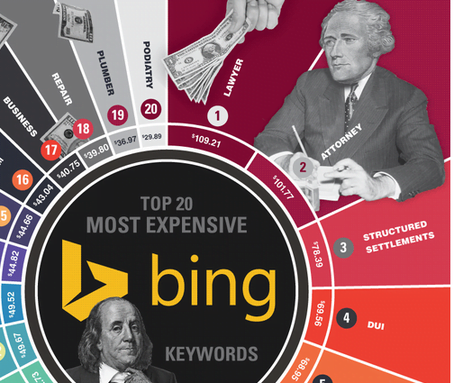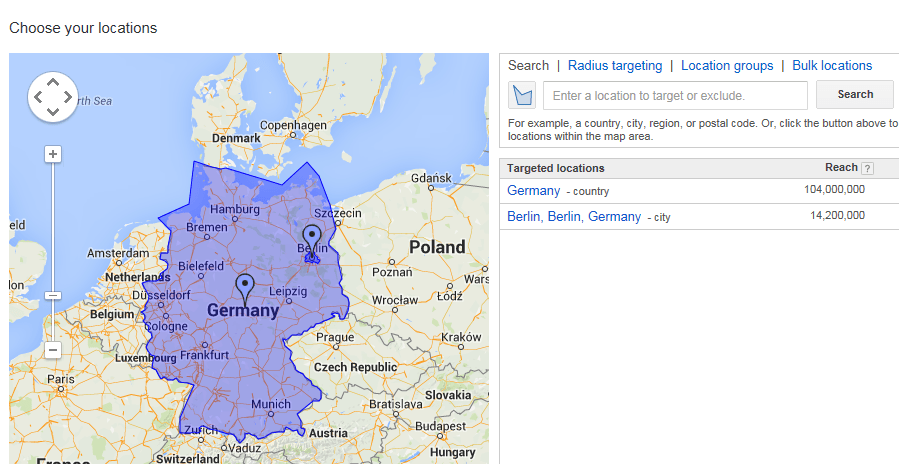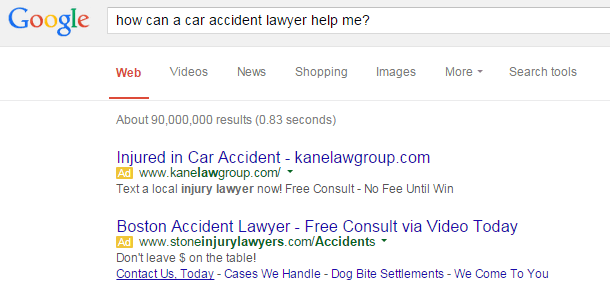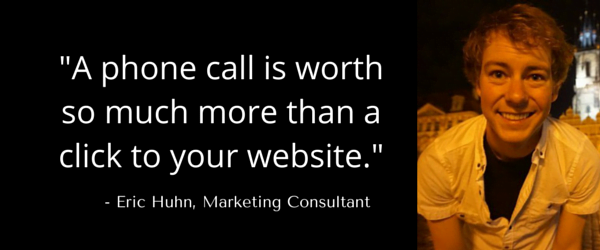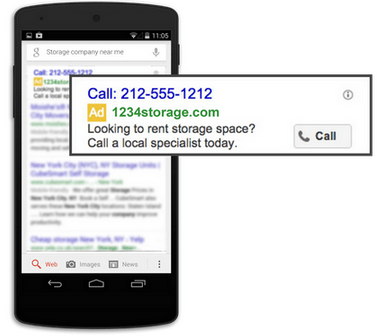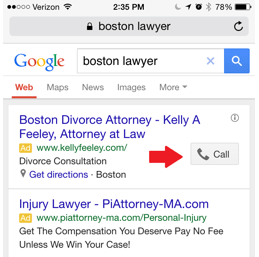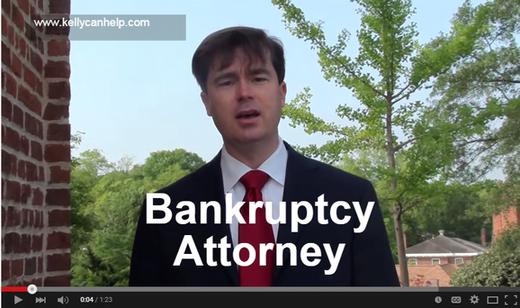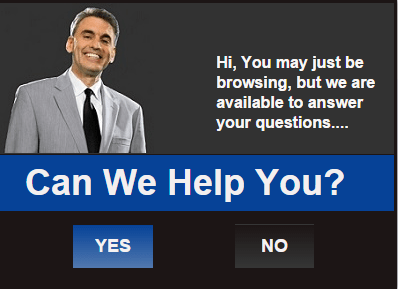
I’ve been writing PPC guides for specific industry verticals for a while now, and naturally law popped into my mind when contemplating which industry to explore next. A good chunk of our clients at WordStream happen to be in the field of law, and I can testify that it’s not an easy industry to be in, especially when it comes to advertising on Google. But in order to survive, it needs to be done!
“Sixteen years ago all you needed to do was purchase a yellow page ad, and that was it. Nowadays if you don’t spend time on digital marketing, and paid search specifically, you’re not going to make it,” says Jeff Kelly, owner of his own law firm specializing in bankruptcy. “Your business will quickly dry up if you’re not marketing online.”
Google Ads for Lawyers: Challenges
To gain an even more thorough understanding of the challenges successful law marketers are facing with paid search, I spoke with three successful WordStream clients in the space, all of which oversee paid search marketing for various law firms. The first common complaint?
Law-related keywords are expensive!
Did you know that “lawyer” and “attorney” are the two most expensive keywords on Bing, costing over $100 per click for searches like “personal injury lawyer” and “criminal DUI attorney”? And that’s just on Bing, which is typically cheaper than Google Ads (formerly known as Google AdWords). Law firms “can easily spend $50,000 to $100,000 per month on PPC,” according to legal marketing specialist, Robert Ramirez.
When you’re averaging $100 per click, if you don’t see a return right away it’s easy to abandon paid search all together. In contrast if done well, PPC can become a critical channel in growing your business substantially.
Competition is fierce
A high level of competition usually goes hand in hand with expensive keywords. Every lawyer in the area is bidding on the same terms, and hoping to yield massive returns so Google’s able to jack up the prices.
“The biggest challenge is getting through the maze of all the other lawyers out there,” says Mikki Anderson, Director of Marketing at Alexander Law, which specializes in personal injury cases. Being located in two prime California destinations, San Jose and San Francisco, doesn’t make things any easier for Anderson. “It’s difficult to gain visibility. We’re decent at getting press, but because of where we are a lot of it is fairly dated. If there’s a horrible accident in the Midwest it will be on the news within a day or two, but unless it jams up traffic in California it’s not getting on the news.” Anderson goes on to explain that with Google it’s easy and difficult in the sense that you have more control, but it’s expensive and everyone’s fighting to be at the top of the SERPs.
Getting qualified searchers is challenging
Many lawyers only take specific cases under specific circumstances. This of course makes it even more challenging to find relevant searchers, especially with the limited demographic targeting capabilities Google has made available to advertisers on the search network. Law marketers are going after expensive keywords that may or may not be relevant.
Anderson explains how their firm only takes severe injury cases that are categorized as catastrophic, which yield a return of a million dollars or higher.
“Law firms are funny. Depending on how severe the injury is, it dictates how much you’ll get back,” says Eric Huhn, a Digital Marketing Consultant running the paid search for Gruber Law. Huhn provides an example of a client that cost $500 to convert with Google Ads, whose case was much smaller, resulting in a $2,000 gain, compared to a major injury case, which can convert from one paid search mobile call and could be worth as much as $100,000. “For us versus other industries, it’s somewhat of a gamble with clients. The goal is figuring out how to find the clients that have been more severally injured because we can be of a lot more help to them compared to someone who’s been in a very minor accident.”
Now that we understand the biggest challenges, let’s dive into the 9 PPC marketing tips to help lawyers get the most return out of Google.
Law Firm Marketing Tip #1: Conduct Competitive Research & Differentiate Yourself
We just discussed how competitive law is on the SERPs, so you need to make yourself stand out somehow. Start by scoping out your competition. Huhn recommends searching the keywords in your area to see what ads show up. “Most lawyers are in either one state or one portion of the state. It’s pretty easy to see your competitive landscape,” he says.
Huhn also explains that it shouldn’t even be that challenging to stand out. “Most lawyers tend to piggy-back off of each other.” So what can you do specifically?
- Craft an actionable & relevant call-to-action that spurs your searches to act immediately.
- Implement all ad extensions to take as much real estate on the SERPs as possible. Look at your competitor’s extensions (if they’re using them) and make yours better. Location, call, sitelink, callout, and review extensions are all great ones to utilize.
- Highlight what makes you better. Does your law firm have 24 hour customer service or offer a free consultation? You need to provide a reason for a searcher to choose you over the lawyer next door – whether that be a unique offering or a great reputation, flaunt your benefits.
One piece of advice, don’t become obsessed with spying on your competition. I’ve seen clients waste hours upon hours trying to figure out how much their competition is spending and which keywords they’re bidding on. There’s no magic way to gain access to their account data. Just check out their ads and make yours better, it’s that simple.
Law Firm Marketing Tip #2: Make Sure Your Geo-targeting is Set Up Correctly
Yes, I’m aware this tip comes from the PPC 101 handbook, but hear me out. You’d be surprised by how many law firms are targeting irrelevant regions.
“I’ve had friends in the legal advertising world that target the entire state of Georgia when they only have one or two offices in specific locations within the state,” says Kelly. “Geography is SO important because the average client is not going to travel further then they need to.”
Dig into the area to figure out the exact radius that makes the most sense to advertise on, and if you have multiple locations separate these into their own campaigns so you can target as accurately as possible.
To set up your location targeting in Google Ads, navigate to the “Settings” tab, then “Locations,” then select city, region or postal code, or get more granular by clicking “Advanced Search,” and target by radius.
With each click costing a heavy chunk of change, making the mistake of wrongfully targeting a location can send a marketer off the deep-end, so double check each campaign!
Law Firm Marketing Tip #3: Ensure Your Ads Speak to the Search’s Intent and Readiness to Hire a Lawyer
Relevancy is key for any industry, but in law it can make or break your campaigns. If you pay for the click at the wrong part of the customer’s journey, you can quickly lose a lot of money. Hiring a lawyer can be a research-heavy process for some, but for others the process can happen instantly. For example, let’s take a case where you’re suing someone. You’re probably not going to hop on Google, make a call, and hire the first firm you see. You’re more likely to conduct research, compare prices, compare lawyer backgrounds, etc. There is no use in suing someone if it costs more to hire a lawyer than to get the return. In other cases, like a marriage you’re itching to get out of, lawyers might be hired a lot faster.
“If someone Googles ‘how can a car accident lawyer help me?’ you’re much more likely to gain business if your ad speaks to their question and directs them to an FAQ or more informative page,” says Huhn. “On the other hand if someone searches ‘hire personal injury lawyer,’ yes, your ad can say something along the lines of ‘we’ll get you more money.’ When people who are asking what to do after a car accident see ‘get maximum compensation’ in an ad, it just doesn’t make sense.”
So what should you do? The answer is simple: structure your account to ensure your keywords, ads, and landing pages match what a searcher’s intent is. If they need more nurturing, nurture them with quality content so they develop brand loyalty, and when the time is right they’re much more likely to choose you over other lawyers in the area.
Law Firm Marketing Tip #4: Prioritize Calls Over All Else
From all three clients that I spoke with, the message was clear: CALLS ARE IMPORTANT. For law firm marketers using PPC, mobile can absolutely not be ignored. There are already more mobile searches occurring on Google then desktop, and regardless every law marketer needs a system in place to capture phone calls whether it be through desktop landing pages or call-only mobile ads.
“A phone call is worth so much more than a click to a website,” says Huhn. “Leads that are much further down the sales funnel are more likely looking to talk to lawyer instantly. A $100 phone call is worth so much more than a $100 click.” So what should you do to drive more phone calls to your law office through paid search?
- Set up call-only campaigns: We all agreed that call-only campaigns are where it’s at. These new campaign formats were released in February of this year and work wonders to push more phone calls to one’s business when searching on mobile. Call-only campaigns replace the headline directing to a landing page with a phone number. This takes the often unnecessary step of visiting a landing page out of the equation, and gets right to connecting a searcher to a real, live person or lawyer right through the SERP’s. “If you’re looking for a lawyer on your phone, chances are you want to call one,” says Anderson. “Call-only campaigns work wonders for that reason. If you’re in the hospital bed after a horrific accident, a phone might also be the only medium you have to find a lawyer.”
- Utilize call extensions: Just do it. They’ll provide another way to get your phone number out there on the SERPs.
- Track every call: Whether it’s coming from a PPC landing page or directly from the mobile SERPs, you need a system in place to track calls. “We track every call back to the source, it’s critical to understand the value to review and tweak our strategy,” says Anderson. Huhn also explains how tracking calls has led to make more informed decisions of when to allocate their budget. “We noticed more calls coming in from 10:00 AM until 2:00 PM in some offices, so we increased mobile bids for those specific times.”
- Ensure you have a 24/7 answering service in place: All of the clients I spoke with also have a system to capture phone calls 24/7, whether it be an automated answering service or a dedicated off-hours staff to field calls. For instance, Anderson’s law office has a 24-hour system in place: during off-hours calls are routed to their call center, where employees are trained to follow a script, and if the call is urgent there’s always an attorney on-call. “If you wait a week to call someone back you’re probably going to lose them,” says Kelly.
Huhn really drove the importance of mobile phone calls home: “If someone doesn’t necessarily have the budget for search I would suggest just advertising on mobile. So much can happen with a click on desktop and lots of law firms are not comfortable spending $100 per click. Instead, increase mobile bids by 200-300%, jump ahead of the competition, and go after the people that are much more likely to convert.”
Law Firm Marketing Tip #5: Use Videos on Your PPC Landing Pages
I’ve never used a lawyer, but I can imagine if I needed one I’d be quite skeptical during the research process. In most cases there’s a lot at stake against someone else’s word. There needs to be a method of gaining a lead’s trust to convince them to convert, which is why videos are so powerful in this industry.
“I can’t stress how important videos are in this industry,” says Huhn. “Lawyer’s don’t always have the best reputation, which is why it’s really important from a marketing standpoint that you trust your lawyer. If you can get on camera and just explain how the process will work or explain what you do as a firm in a non-salesy way, people love that!”
Anderson agrees, but places a higher focus on customer testimonials. “Video testimonials help people see other people like themselves, which helps them relate. Then they’ll think ‘Oh ok, these guys helped other Asian or Hispanic clients in the Bay Area,’” she says. “Where we’re located it’s a diverse population yet it’s difficult to find lawyers of the same ethnicity in the field, so often people are forced to look outside their comfort zone.”
So don’t be intimated by video because it can actually work wonders to convert skeptical leads. Try out an easy-to-use service like Wistia, and get creative with your video strategy.
Law Firm Marketing Tip #6: Have an Online Chat System in Place
This tip was also unanimous – having a chat feature on law landing pages is critical since so many case-specific questions can’t be answered through generic FAQ’s or even video content.
“Some people are not comfortable picking up the phone, and they’re much more apt to talk to an online rep rather than call a lawyer,” says Huhn.
Even though Anderson explains that having a chat system opens up their site to more noise, at the end of the day they have gained a few cases from this strategy so she finds it worth the investment of time and service. “It’s another way for people to get in touch, ask case-specific questions, and has led to some productive phone calls,” she says. “I like our clients to know that we’re accessible through whichever avenue they prefer.”
Law Firm Marketing Tip #7: Invest in Building a Memorable Brand – And Use Display Ads
Branding is one of those things that’s easy to overlook, especially if you are a preoccupied lawyer attempting to market your firm while working on client cases.
Yet, with so much competition, branding can really be the key to standing out in the industry. Unfortunately one of the cheapest and easiest ways to gain brand recognition is vastly underused. WordStream Data Scientist Mark Irvine found from a sample of our clients in the industry that only 5% of legal spend is allocated to the display network, even though the average cost-per-click is as low as $.65. Yet, 95% of spend is on search. Spending on search makes sense, but when clicks are cheap, display shouldn’t be overlooked from a brand standpoint.
Huhn explained that having a well-known brand has made it substantially easier to stand out against the other lawyers on the SERPs. Before implementing digital tactics, Gruber Law allocated 90% of their marketing efforts to TV commercials, so their slogan, “one call that’s all,” is well-known in Milwaukee. “We still do a lot of TV advertising and accompany it with display, which seems free in comparison,” he says. “A lot of companies don’t go that route, and underestimate the value of building a brand. For us, search is used to go after the sector of people that either don’t know who we are or don’t even know they need a lawyer.”
To target the most relevant searchers, utilize remarketing to show your ads to people that have already visited your site, and therefore are much more likely to need a lawyer.
Law Firm Marketing Tip #8: Track Every Action
Clearly law is a challenging industry to be in when it comes to marketing. We all know this by now, but this is why tracking and optimizing is key to seeing what’s working and what’s not.
“Track everything that you can – record phone call conversions in analytics,” says Huhn. “If you’re just starting out and you’re measuring success by the fact that people are clicking on your ad, that’s never going to justify if that’s a qualified lead or not. The ad might be getting clicked a lot, you might be spending a lot, but on the backside that visitor might be bouncing and the keywords you’re bidding on should actually be eliminated.”
Anderson echoed that same motto. She’s being doing PPC since 2008, and hasn’t stopped running A/B tests, measuring what’s working and what’s not, and trying new strategies to see what resonates.
“You’re going to end up spending a crap ton of money that goes nowhere. Hire someone who knows what they’re doing,” says Anderson. “No lawyer has time to advertise and track results on Google, and when it comes down to it all you’re going to do is end up spending a ton of money and getting nowhere if you’re not tracking and optimizing for better performance.”
Law Firm Marketing Tip #9: Don’t Forget About Bing
Bing who? Oh you know, that little search engine that hangs out around Google. Well, Bing actually isn’t that little! They reach 20% of the search market in the U.S., according to comScore, and shouldn’t be overlooked when it comes to finding new clients.
“Go hard on Bing. It’s way cheaper, and a lot of the time I’ve seen higher conversion rates,” says Huhn.
The most important takeaway for all PPC lawyers out there? Learn paid search before diving in head first! You wouldn’t practice law without a degree, right? Take PPC just as seriously.
“Paid search is critical to landing the clients I’m most interested in,” concludes Anderson.

